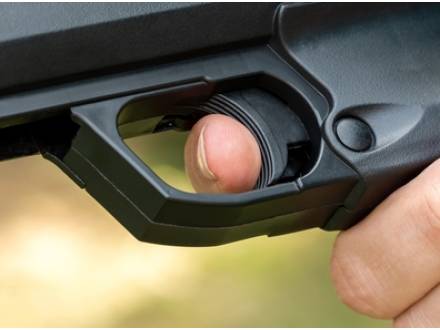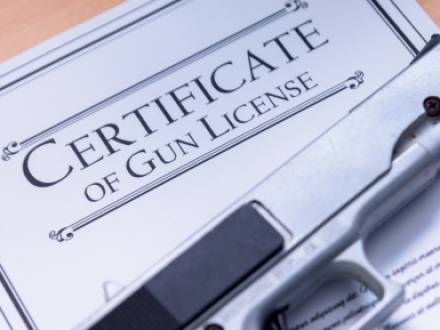
Recent Blog Posts
Is It Illegal to Have a Loaded Gun in Your Car in Maryland?
 A Dundalk, MD man is currently facing gun charges after an alleged road rage incident in Baltimore County. The 26-year-old man has been charged with using a firearm during a felony crime, as well as having a loaded handgun in his vehicle, along with assault charges and drug charges. Another driver alleged that the man pointed a "silver firearm" at him during a road-rage interaction, and the police later recovered three loaded firearms at the suspect’s place of employment and his home.
A Dundalk, MD man is currently facing gun charges after an alleged road rage incident in Baltimore County. The 26-year-old man has been charged with using a firearm during a felony crime, as well as having a loaded handgun in his vehicle, along with assault charges and drug charges. Another driver alleged that the man pointed a "silver firearm" at him during a road-rage interaction, and the police later recovered three loaded firearms at the suspect’s place of employment and his home.
Gun laws across the state of Maryland are some of the strictest in the nation. Understanding what is legal and what is not, especially if you come from a state with more lenient gun laws, can be confusing, especially regarding transporting a loaded gun in a vehicle. Perhaps you have a concealed carry permit, either from the state of Maryland or another state. Or perhaps you are traveling and have a loaded firearm in your vehicle for protection. Either way, you could find yourself facing serious charges with serious penalties.
Is Conspiracy to Commit Murder as Serious as Murder?
 Conspiracy charges are often filed against those involved in violent crimes like murder, as well as charges like fraud, embezzlement, distribution of drugs, or any type of crime involving more than one person. Alleged gang members are often charged with conspiracy if the criminal offense is "gang-related." Organized crimes may also incur conspiracy charges.
Conspiracy charges are often filed against those involved in violent crimes like murder, as well as charges like fraud, embezzlement, distribution of drugs, or any type of crime involving more than one person. Alleged gang members are often charged with conspiracy if the criminal offense is "gang-related." Organized crimes may also incur conspiracy charges.
Conspiracy is charged when the prosecution believes a person has knowledge that a crime was about to be committed or when a person benefits from the commission of a criminal act. Because conspiracy crime statutes are often broadly worded, prosecutors may file conspiracy charges as a way of gaining leverage over a wider range of people than those charged with the actual commission of the crime.
If you have been charged with conspiracy, especially conspiracy to commit murder, it is extremely important that you speak to a knowledgeable Centreville, MD violent crimes attorney. The penalties for a conspiracy charge are often almost as harsh as the underlying crime, so having an experienced criminal defense attorney is crucial.
Are Assault Penalties Harsher When the Victim is Elderly?
 Recently, two teens were arrested for punching one elderly woman, stealing another’s car, and robbing an elderly man at knifepoint, all while these elderly individuals were working in community gardens in the area. While assault is a serious crime with serious penalties on its own, assaulting an elderly person can result in enhanced penalties. If you are facing assault charges, it is important to speak to an experienced Centreville, MD criminal defense lawyer.
Recently, two teens were arrested for punching one elderly woman, stealing another’s car, and robbing an elderly man at knifepoint, all while these elderly individuals were working in community gardens in the area. While assault is a serious crime with serious penalties on its own, assaulting an elderly person can result in enhanced penalties. If you are facing assault charges, it is important to speak to an experienced Centreville, MD criminal defense lawyer.
What is Assault Under Maryland Law?
Assault in the first degree is found in Sections 3-202 and includes causing or attempting to cause serious physical injury to another person or assaulting a person with a firearm. A person could be charged with assault in the first degree if he or she creates an "apprehension of imminent harm in the mind of the victim," even if the victim is never actually touched. Assault in the first degree is a felony offense with penalties of up to 25 years in prison.
Maryland Gun Permits Spike in 2025
 In 2020, fewer than 50,000 Maryland residents had handgun carry permits. Five years later, that number is 200,540, according to the Maryland State Police. While this number accounts for only about 3 percent of the entire state’s population, it has more than quadrupled since five years ago. It is also larger than the entire population of Annapolis, Frederick, and Columbia cities.
In 2020, fewer than 50,000 Maryland residents had handgun carry permits. Five years later, that number is 200,540, according to the Maryland State Police. While this number accounts for only about 3 percent of the entire state’s population, it has more than quadrupled since five years ago. It is also larger than the entire population of Annapolis, Frederick, and Columbia cities.
Like everything involving firearms in America, the consequences of the gun permit spike are complex. Those who advocate for loosening Maryland’s gun laws claim that gun owners in the state are law-abiding and that when these law-abiding citizens have guns, public safety increases. Those who oppose loosening gun regulations insist that more guns equal more gun violence and more gun crimes.
Is Self-Defense a Valid Defense for Maryland Assault Charges?
 Perhaps you have been charged with assault in Maryland. These are serious charges with serious penalties, which benefit significantly from a strong, experienced criminal defense attorney. You may have simply been defending yourself and cannot believe you have been charged with assault.
Perhaps you have been charged with assault in Maryland. These are serious charges with serious penalties, which benefit significantly from a strong, experienced criminal defense attorney. You may have simply been defending yourself and cannot believe you have been charged with assault.
Many assault charges result from incidents in bars or other public places when tempers boil over due to perceived or real issues. Assault charges can be filed even when the alleged victim was not injured but only believed there was an actual threat of harm or injury. If you are facing assault charges, it is important to have a knowledgeable Annapolis, MD assault lawyer.
What is Assault in Maryland?
In Maryland, a defendant can be charged with first-degree assault or second-degree assault. First-degree assault is a felony offense that is charged when a defendant intentionally causes or attempts to cause serious physical injury to another person, strangles another person, or commits an assault with a firearm.
What are Maryland’s open container laws?
Imagine cruising down the scenic roads of Maryland, enjoying the view with friends. Suddenly, you see flashing lights behind you and a sound alerts you to park. Could that unopened beer in your cup holder spell trouble? Maryland’s open container laws are strict, and knowing the rules can save you from hefty fines and legal headaches. Here is what you need to know about open container violations.
What counts as an open container?
In Maryland, an open container is any alcoholic beverage in a bottle, can, or other receptacle that:
- Is open
- It has a broken seal
- Has its contents partially removed
This law applies to both drivers and passengers. You must understand that you do not need to actively drink or open the container to face penalties. Even if it is in the cup holder or on the floor, it could still get you in trouble. According to the Maryland Transportation Code, it is illegal to have an open container of alcohol in the passenger area of a motor vehicle on a highway. This includes the seats and any location within reach of the driver or passengers.
Can Police Search Your Car During A Drug Related Stop?
Can police search your car during a drug-related stop?
On Behalf of Henley & Henley, Attorneys at Law | Feb 3, 2025 | Drug Charges
Drug misuse continues to devastate communities across the country. Maryland is no different, prompting increased law enforcement. Maryland police work hard to stop illegal drugs from spreading in our communities.
Traffic stops can help officers catch people carrying drugs on the roads. Whether you have prescription medicine with you or the police wrongly suspect you of drug possession, knowing your rights during these stops can help you ease your anxiety and protect yourself.
When police can legally search your vehicle
Law enforcement needs either your consent or probable cause to search your car. Probable cause means officers must have reasonable evidence suggesting criminal activity. Police might claim probable cause if they:
- Smell marijuana or other drugs on you
- Notice drug paraphernalia in plain view
- Observe shifty or suspicious behavior
4 Everyday Actions That Can Land You In Legal Trouble
4 everyday actions that can land you in legal trouble
You might think taking a shortcut through an empty lot or recording a funny conversation is harmless. However, these everyday actions could violate Maryland law without you knowing it. Claiming you didn’t know about a law won’t protect you from criminal charges.
Recording private conversations
Maryland follows two-party consent laws for audio recordings. This means everyone in the conversation needs to agree to being recorded. Recording your neighbor’s loud argument or a workplace discussion without their consent could result in wiretapping felony charges.
Cutting through private property
Taking a quick drive through an empty lot to avoid traffic might save time when you’re running late. However, it may also break the law. Maryland generally considers this action as criminal trespassing unless you or the neighborhood hold easement rights. You may still face penalties and fines even if you didn’t damage the property or mean harm.
How Many Points Are You Away From Losing Your License?
How many points are you away from losing your license?
A few drivers can lose their licenses due to accumulating too many points on their driving record or a specific violation. This can be a driving under the influence (DUI) or driving while intoxicated (DWI). To understand how this happens, knowing how Maryland’s point system works is important.
In a traffic violation conviction in Maryland, the court notifies the Motor Vehicle Administration (MVA), which then adds points to your driving record. The number of points assigned depends on the specific violation. For example, speeding more than 20 mph over a 65 mph speed limit results in 5 points.
Here’s what happens when you accumulate points:
- 3 to 4 points: The MVA sends a warning letter.
- 5 to 7 points: You need to complete a program.
- 8 to 11 points: The MVA sends a notice of suspension.
- 12 or more points: The MVA sends a notice of revocation.
How Do Maryland's DUI Laws Affect Underage Drivers?
How do Maryland’s DUI laws affect underage drivers?
DUI is a serious offense for any Maryland driver. But things get even more complicated if an underaged driver is involved in a DUI case. That’s why it’s essential for young drivers and their parents to know about Maryland’s strict underage DUI laws
What is underage DUI in Maryland?
Maryland sets the legal drinking age at 21 and enforces a zero-tolerance policy for underage drinking and driving. While adults face DUI charges at a 0.08% blood alcohol concentration (BAC), drivers under 21 can receive DUI charges for any detectable amount of alcohol in their system.
These stricter laws aim to prevent alcohol-related accidents among young drivers, who face higher risks on the road.
Long-term effects of underage DUI
An underage DUI conviction can impact a young person’s life well beyond the immediate legal penalties:
- College applications: Many universities consider criminal records during admissions.




